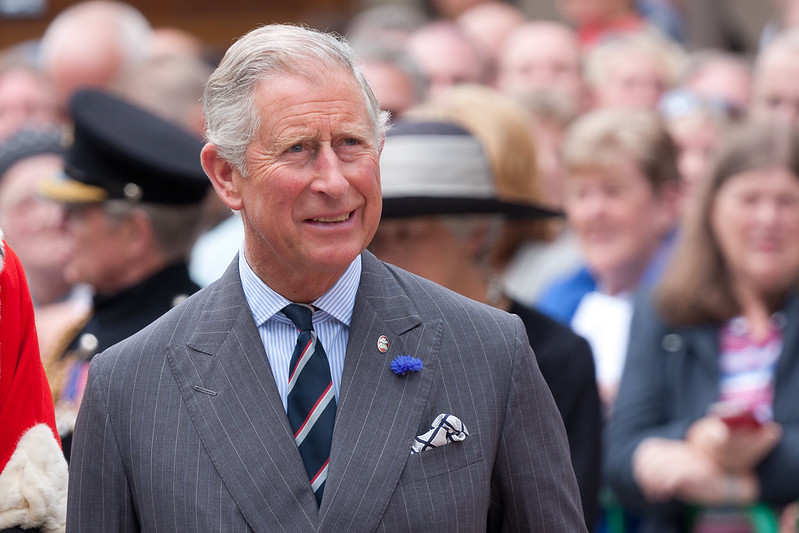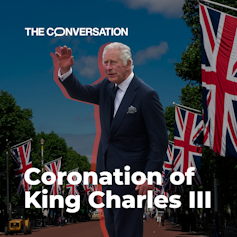News
King Charles III coronation: what to expect this coronation weekend

The formal focal point of the weekend is the coronation at Westminster Abbey, where King Charles III and Queen Camilla, will be crowned. (File Photo: Dan Marsh/Flickr, CC BY-SA 2.0)
The monarchy is under pressure. Ongoing scandals and waning support from a younger generation suggest an outdated institution with little relevance to the modern era. Enshrined in pomp and pageantry, the coronation weekend is a golden opportunity for the monarchy to demonstrate its ongoing value to the British public.
The three days of the coronation weekend, May 6-8, will be filled with activities that could strengthen the monarchy’s image and brand. Festive events like this promote “feelings, fantasy and fun”, which are all key aspects of the most compelling consumer experiences – and make no mistake, the coronation is a consumer experience.
Each day has been cleverly designed to inspire a range of feelings and responses that encourage people to engage with the royal family brand. Such engagement is crucial, because a constitutional monarchy such as the UK’s depends on the support of the public for its continued existence. Nowhere is this more clearly illustrated than in various Commonwealth countries distancing themselves from the British monarch as their head of state.
At its heart, the weekend is about creating experiences and personalised memories around the monarchy. In the past, these memories were preserved in scrapbooks and photo albums passed between generations. Now, people share them on social media. But they continue to link friends and family across generations, and ensure the monarchy stays embedded in British culture.

This piece is part of our coverage of King Charles III’s coronation. The first coronation of a British monarch since 1953 comes at a time of reckoning for the monarchy, the royal family and the Commonwealth.
For more royal analysis, revisit our coverage of Queen Elizabeth II’s Platinum jubilee, and her death in September 2022.
Saturday: pageantry
The formal focal point of the weekend is the coronation at Westminster Abbey, where King Charles III and Queen Camilla, will be crowned. The resplendent visual spectacle – commencing with the procession from Buckingham Palace to the abbey – uses carefully orchestrated pomp and circumstance to remind spectators of the magic of monarchy.
As the Diamond Jubilee State Coach (and later, the Gold State Coach) carrying the king and queen consort makes its way along the royal route, many cheering spectators will let their minds drift to the fairytales of their childhoods.
But perhaps the most abiding feelings generated at this point will be the sense of stability and continuity that such traditional pageants symbolise. Historian David Starkey has described the monarchy as “the one continuous lens through which you can actually look at the history of England”. Heritage is the royal family’s key asset, and King Charles III’s coronation is another significant link in its 1,000-plus year history.
In testimony to the monarchy’s “soft power”, foreign dignitaries and world leaders will be among the 2,000 anticipated guests taking their places in the abbey alongside members of the royal family – although, following historical precedent, the US president Joe Biden will not be among them.
The ceremony, broadcast around the world, reminds us of the British monarchy’s global reach. Queen Elizabeth II’s coronation in 1953, the first to be fully televised, reached 27 million viewers and 11 million radio listeners. Millions of locals and visitors flooded the streets of London to glimpse the proceedings. We can expect similar crowds for Charles and Camilla.
Sunday: play
For many people, the weekend’s main event will be a celebratory gathering with neighbours on Sunday, when street parties will take place all around the UK. This now-traditional part of British culture dates back to 1919, when “Peace Teas” were served to mark the end of the first world war.
Street parties have since become a crucial component of royal events. The official coronation website encourages people to join in the Coronation Big Lunch, offering downloadable materials to aid planning and inspire creativity.
Street parties are not necessarily favoured only by monarchists. Many participants will be there simply to enjoy mingling with others and have fun. Some may even be republicans or apathetic towards the monarchy.
A study of the Queen’s Golden Jubilee in 2002 found that one street party brought their community of “party people” together over a dislike of the monarchy. The same study showed that the main purpose in organising a street party was to unite local communities and welcome diversity, rather than celebrating a common national identity.
This is also the advertised purpose of Sunday evening’s coronation concert at Windsor Castle, which will “showcase the country’s diverse cultural heritage in music, theatre and dance”. It is particularly important for the future of the monarchy that its key asset, British heritage, is interpreted in more diverse ways than hitherto if it is to remain relevant.
To be seen as inclusive as possible, the concert is likely to feature a heterogeneous mix of performers from across Britain and the Commonwealth. The coronation choir that will also perform at the concert is an excellent example of this. It has members from refugee, LGBTQ+ and deaf signing communities, and will be supported by a virtual choir composed of singers from across the Commonwealth.
Through hi-tech illuminations with drone displays and other sophisticated effects across the country, organisers will hope to convey a message of national unity, rather than identity, to those watching.
Monday: public service
A day of local volunteering on May 8 concludes the coronation weekend. With this, the king will show off his dedication to public service. The “Big Help Out” is billed as a way to inspire community-building and supporting local areas.
The effort should appeal to Generation Z who are most disaffected with the monarchy and see it as an outmoded institution. Regular volunteers and generous charitable givers, these young people favour actions rather than words. Their endorsement will be crucial to the future survival of the monarchy.![]()
Pauline Maclaran, Professor of Marketing & Consumer Research, Royal Holloway University of London
This article is republished from The Conversation under a Creative Commons license. Read the original article.





















